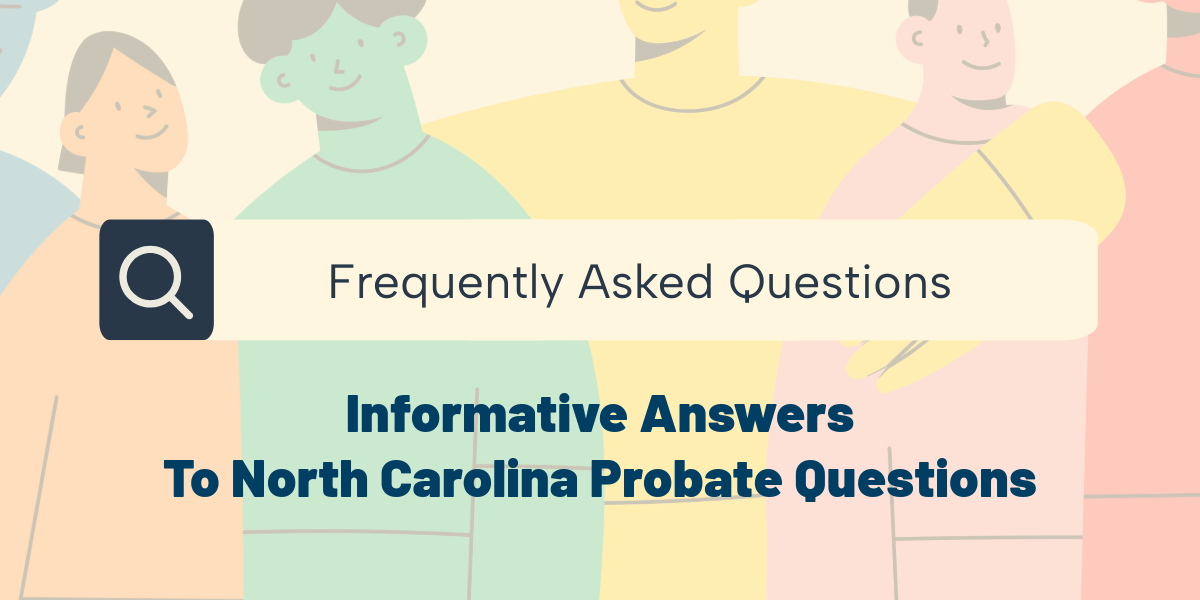Frequently Asked Questions about Probate and Estate Administration In North Carolina
What is Probate and When is it Required in North Carolina?
Probate is a legal process that occurs after someone passes away. It involves the court overseeing the distribution of the deceased person’s assets and the payment of any debts and taxes. In North Carolina, probate is generally required when:
- The deceased person owned assets solely in their name.
- There isn’t a named beneficiary for the assets in question.
- The estate is too large to qualify for a simplified process.
According to North Carolina General Statutes Chapter 28A, probate is designed to ensure a legal transfer of assets and settlement of debts. This process can be complicated, and outcomes often depend on the specific details of the estate. Thus, understanding when probate is needed can save time and potential legal challenges. If you find yourself needing help to initiate probate proceedings, it is advisable to consult with an experienced probate lawyer.
Don’t navigate the complexities of probate alone. Reach out to our experienced estate administration attorneys for guidance tailored to your situation.
What Are the Duties of an Executor in North Carolina Probate?
The executor, also known as the personal representative, plays a crucial role in the probate process in North Carolina. The executor’s duties include:
- Filing the will with the local probate court.
- Creating an inventory of the deceased’s assets.
- Paying debts and taxes owed by the estate.
- Distributing the remaining assets to the rightful heirs at law or as dictated by the will.
As per NCGS § 28A-13-3, an executor must act in the best interest of the estate, performing all duties with due care. Failing to comply with statutory requirements could lead to legal liabilities. If you’re named an executor, it’s crucial to understand your responsibilities clearly. Seek legal advice if you’re uncertain about the probate duties or process.
Ensure you’re fulfilling all executor duties correctly. Schedule a consultation with our knowledgeable probate attorneys today.
How Long Does Probate Take in North Carolina?
The duration of probate in North Carolina can vary greatly based on several factors, including the complexity of the estate and any disputes amongst beneficiaries. On average, the probate process lasts between nine months to a year but can take longer in complex situations.
Factors influencing the length of probate include:
- Whether or not a valid will is present.
- The size and complexity of the estate.
- Disagreements among heirs or creditors.
- Involvement of significant non-probate assets.
In accordance with North Carolina law, certain filings and notices have specific deadlines that must be met, which can also impact timelines. Early engagement of an attorney often helps streamline the process effectively, ensuring compliance with applicable statutory requirements.
Expedite your probate process by consulting with our experienced estate attorneys to avoid unnecessary delays.
What Is a Small Estate Affidavit in North Carolina Probate?
For certain estates in North Carolina, a simplified probate process, known as the small estate affidavit, may be available. This process is applicable when:
- The estate’s value does not exceed $20,000—or $30,000 if the surviving spouse is the sole heir.
- No other formal probate proceeding has been initiated or required in light of the small estate’s value.
- More than 30 days have passed since the decedent’s death.
Under NCGS § 28A-25-1, this affidavit allows the personal representative to collect and distribute the assets without opening full probate, simplifying and speeding up the process. If you believe a small estate affidavit might apply, understanding eligibility and precursory steps is essential. Consulting a probate attorney can offer clarity and direction.
Simplify your estate administration with a small estate affidavit. Contact our legal team for assistance today.
How Are Probate Disputes Resolved in North Carolina?
Probate disputes in North Carolina can arise for several reasons, such as contestations of the validity of a will, mismanagement by the executor, or disagreements over asset distribution. Resolving these disputes often involves:
- Mediation to reach an amicable settlement out of court.
- Court hearings where the judge will resolve any contested issues.
- Engaging forensic accountants or advisors for disputes involving asset valuations.
As guided by NCGS § 31-32, beneficiaries, creditors, or executors may petition the probate court to address grievances. Pursuing early legal counsel is often the best course of action to mitigate the complexity of such disputes, potentially reducing emotional strain and financial costs.
Resolve your estate disputes smoothly and efficiently. Set up a consultation with our dedicated probate dispute resolution team now.
Ready to Transform Your North Carolina Probate Journey?
Navigating the complexities of probate can be overwhelming during an already difficult time. Let our experienced probate attorneys assist you in managing estate smoothly and efficiently. Whether you’re handling a loved one’s estate for the first time or facing complicated legal challenges, we’re here to provide the support and expertise you need.
Why Choose Pierce Law Group?
•Advice You Can Trust: Years of experience in probate and estate administration.
•Compassionate Support: We understand the emotional and legal challenges you’re facing.
•Comprehensive Services: From filing necessary documents to resolving disputes, we handle it all.
•Personalized Solutions: Tailored strategies to meet your unique needs and circumstances.


